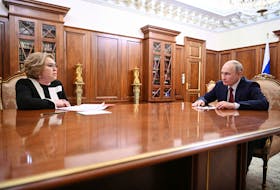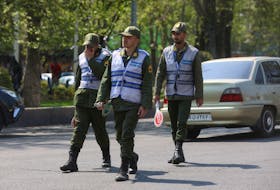The president of the Newfoundland and Labrador Archeological Society says there may not be any traces of the Norse there, but southwestern Newfoundland still has history that is unexplored.
John Campbell, a PhD student in archeology at Memorial University in St. John’s, was reacting to news this week that an archeological excavation at Point Rosee in the Codroy Valley did not find any evidence the Norse were ever there.
Related stories:
Archeology report confirms no evidence of Norse presence at Point Rosee in southwestern Newfoundland
World-renowned American archeologist Sarah Parcak had spent parts of 2015 and 2016 digging up areas of Point Rosee to see if her theory that Vikings had spent time there a millennium ago had any veracity. While her initial findings were intriguing, a report by Parcak filed with the provincial government has confirmed she did not find anything Norse at the site.
Campbell said western Newfoundland is littered with place names associated with French Basque fish harvesters, but no strong archeological evidence has ever been found of their presence. He also noted the French and English obviously settled there later, and there is the Indigenous community of the Mi’kmaq.
He said the archeological community was taken aback when Parcak announced she might have found evidence of the Norse having once been at Point Rosee.
“From an archeological standpoint, it’s interesting to just go straight to Norse instead of laying all possibilities out on the table first,” said Campbell. “I think that’s what grew the community skeptical from the conception of this statement by Dr. Parcak.”
While confirming a Norse presence may have been an economic boost to the area, Campbell said archeological investigations into the people who were more likely to have been there could still lead to opportunities for the local tourism industry.
“If there is more archeology to be done in the area, especially in conjunction with the Mi’kmaq population, there could certainly be a tourism drive to these areas,” he said.








